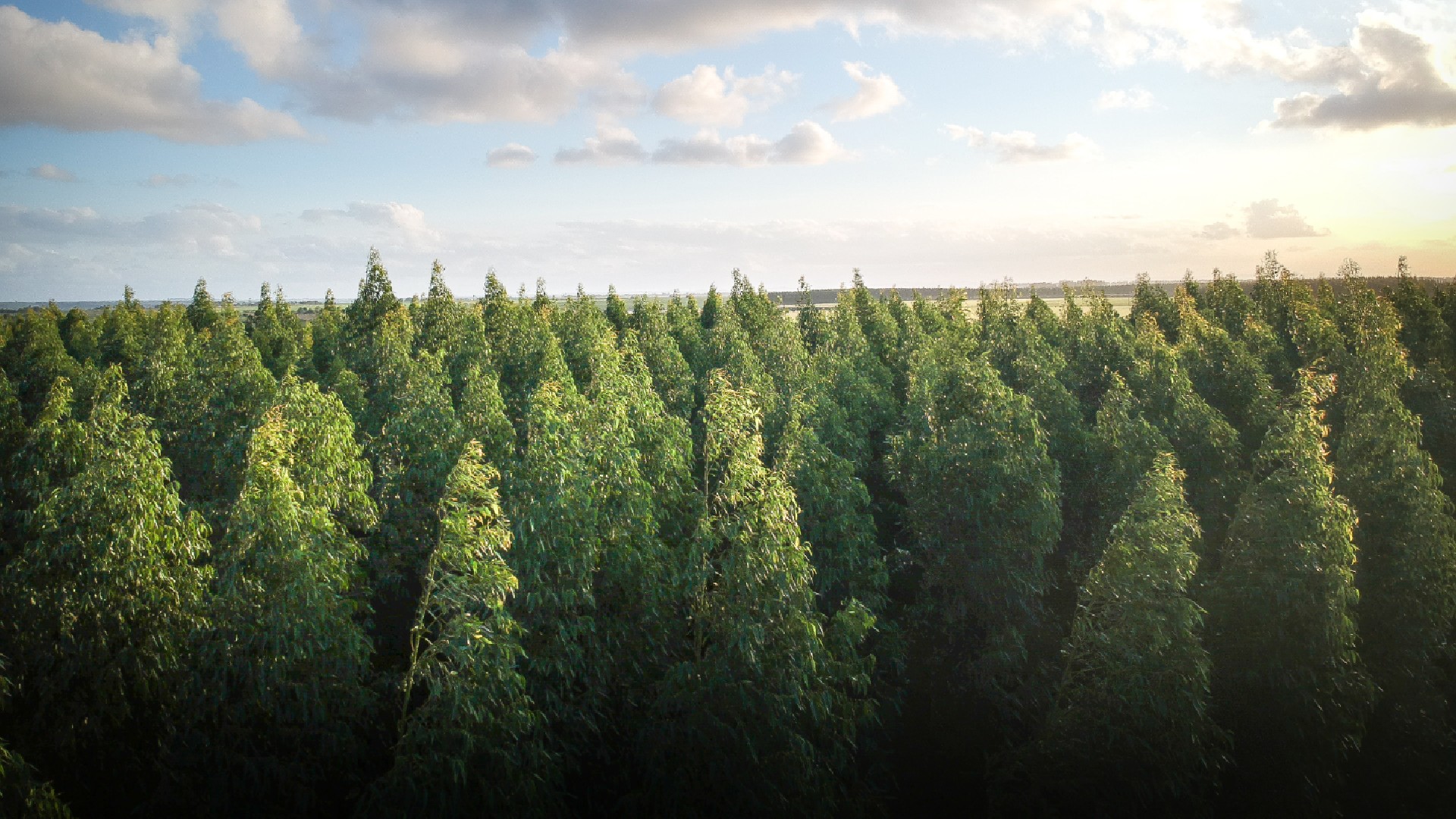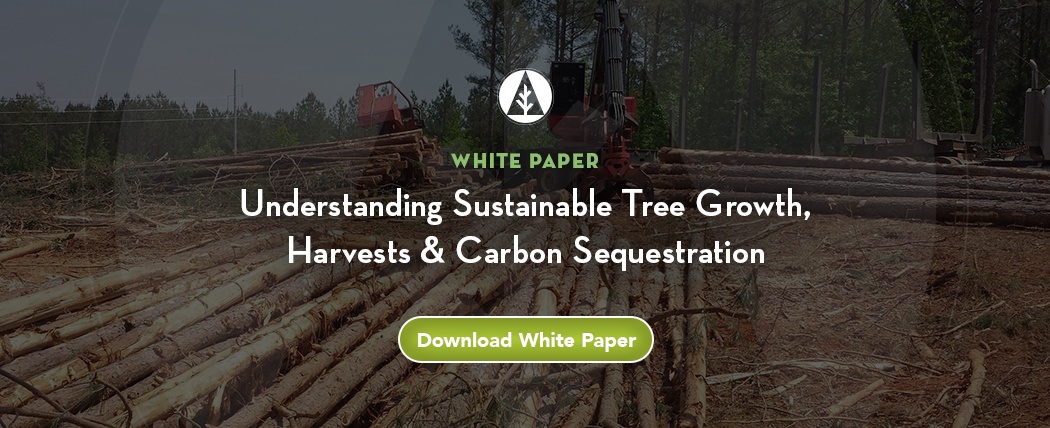4 min read
Forest Products Sustainability Initiatives Making Headlines
Forest2Market
:
October 20, 2021

The push for a more sustainable global economy continues to drive innovations in nearly every business sector across the globe, and the forest industry is helping to lead the way. We wanted to share a few of the most exciting developments in this roundup of recent sustainability-oriented projects that are making headlines.
DS Smith Embeds Circular Design Metrics Across All Packaging Sites
Sustainable packaging specialist DS Smith has embedded its pioneering Circular Design Metrics across all its packaging sites to support the transition to a circular economy and help its customers achieve their ESG goals. According to the company, corporations around the world are working to create and implement ESG plans that meet the demands of all stakeholders, and CEOs specifically are facing increased pressures to meet those goals. A recent KPMG survey of 1,325 chief executives, shows that 58 percent are "seeing increased demands from stakeholders — such as investors, regulators and customers — for increased reporting and transparency on ESG issues." Much of the challenge for business stems from the ability to capture data and transparently report on activity against these goals.
Shell to Produce Sustainable Jet Fuel at Scale By 2025
Royal Dutch Shell plc recently announced its ambition to produce around 2 million tons of sustainable aviation fuel (SAF) a year by 2025. It also aims to have at least 10% of its global aviation fuel sales as SAF by 2030. “Currently, sustainable aviation fuel accounts for less than 0.1% of the world’s use of aviation fuel1. We want to help our customers use more SAF,” said Anna Mascolo, President of Shell Aviation. “With the right policies, investments and collaboration across the sector we can accelerate aviation’s progress towards net zero by 2050. Last week we announced that we have taken a final investment decision for a new biofuels plant at our Rotterdam Energy and Chemicals Park. Shell also offers certified nature-based carbon credits to offset emissions, and we are exploring other ways to help aviation get to net zero, including hydrogen power.”
Segezha Outlines Actions to Preserve Biodiversity of Forests it Leases, Minimize Impact on Local Flora and Fauna
Following the principles of responsible forest management and supply, Segezha Group has taken measures to preserve the biodiversity of the forests it has leased and minimize its impact on local flora and fauna.
When planning economic activities, the company deploys every means available to check whether a leased forest includes ecologically valuable areas. If so, they cooperate with interested parties to establish an appropriate protection regime there. The company ensures the preservation of biodiversity at three levels: the landscape, that is, large expanses of forest (intact forest landscapes); the biological community (rare types of forest, habitats of rare flora and fauna species); and at the local level (biodiversity at felling sites — biotopes and elements of biodiversity). Every year, the company monitors forests with a high conservation value and decides whether its protective measures are adequate.
Ahlstrom-Munksjö’s Sustainability Work Awarded with a Fifth Consecutive Ecovadis Gold Rating
Ahlstrom-Munksjö has been awarded with EcoVadis Gold rating for the company’s sustainability management and performance for a fifth consecutive year. This places Ahlstrom-Munksjö in the top 2% of suppliers assessed in the pulp, paper and paperboard manufacturing industry. Compared with the results from the previous year, progress was made in ethics.
EcoVadis is a globally recognized business sustainability rating provider. The Corporate Social Responsibility assessment criteria include four themes; environment, labor and human rights, ethics and sustainable procurement. The EcoVadis method is based on internationally adopted principles for sustainability reporting, such as the Global Reporting Initiative, United Nations Global Compact and ISO 26000, and is audited by independent sustainability experts.
Global Spirits Company Donates $500,000 to Support America's White Oak Forests
The White Oak Initiative, a diverse coalition of partners committed to the long-term sustainability of America’s white oak forests, today announced that it will receive a $500,000 donation from Beam Suntory’s Yamazaki brand as the company celebrates the limited release of Yamazaki 55, its 55-year-old Japanese single malt whisky. The donation, which supports Beam Suntory’s Proof Positive sustainability strategy, represents $5,000 for every bottle of Yamazaki 55 sold this year and is meant to honor the forests that produced the casks in which components of this whisky were aged.
New Report by Edge Environment Highlights Ways to Accelerate Usage of Natural Climate Solutions for Climate Impact Reduction
International sustainability consultancy Edge Environment released a new report entitled Cultivating a Rich Ecosystem of Natural Climate Solutions, on the evolving landscape of Natural Climate Solutions (NCS). The report summarizes the tremendous climate impact reduction potential of solutions such as sustainable forestry, regenerative agriculture, wetlands initiatives, and more; details six top solutions for immediate, substantial, and cost-effective impact, and describes actions various organizations can take to make NCS a value-generating part of a robust climate impact reduction plan.
Biomass from Wood Byproducts Fuels Domtar Mills with Renewable Energy
In 2020, 73% of the energy for Domtar’s pulp and paper mills came from renewable sources. This is better than the industry average of about 65 percent, according to the American Forest and Paper Association. Our mills also generated the equivalent of 71% of their electricity needs, reducing their dependence on the grid. This renewable energy comes from biomass — byproducts from our manufacturing process, such as black liquor, bark and wood residues. Unlike coal or other fossil fuels, energy captured from biomass results in net zero emissions of carbon dioxide into the atmosphere over the long term. Biomass (wood, wood waste and biofuels) is the United States’ largest source of domestic renewable energy, supplying more energy than wind and solar combined.
Enviva and The Longleaf Alliance Publish Partnership’s First Annual Report on Restoration Accomplishments Across the U.S. Southeast
In March of 2020, Enviva and The Longleaf Alliance announced a five-year partnership with the goal of protecting and restoring longleaf pine forests, one of the most biodiverse ecosystems in North America.
One year into the five-year partnership, the two organizations have released a joint Annual Report detailing the progress that has been made to-date towards increasing acreage of longleaf pine forests across the U.S. Southeast, both on private and public lands.
Appropriate biomass removals are a critical step in the longleaf restoration process because many existing longleaf forests need thinning and millions of acres of former longleaf forests have been converted to other forest types.





